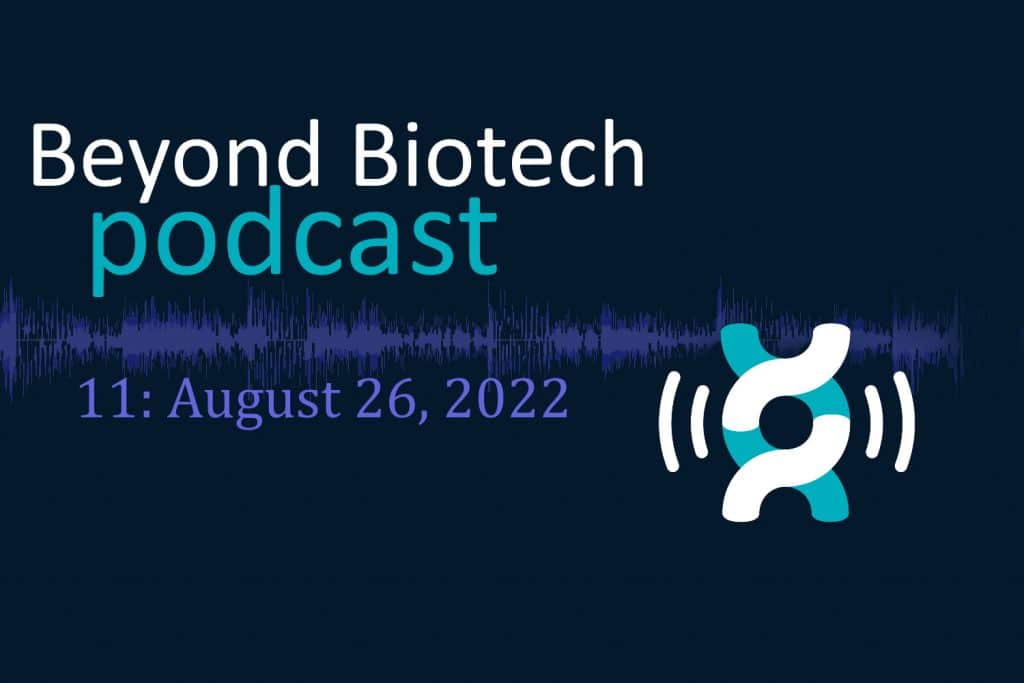This week it’s another four interview podcast, and the introduction of a new feature.
Our guests are Ilya Pharma CEO and co-founder Evelina Vågesjö and chief financial officer Oskar Lund; Miguel Martín-Álvarez, postdoctoral fellow in the cancer science unit at IRB Barcelona; Hubert Chen, head of clinical development at Krystal Biotech; and Ivan Liachko, CEO of Phase Genomics.
We also have a new addition to the podcast, as JLL will be joining us each week with a look at some of the recent interesting financial news. This week, we’re joined by Robert Coughlin, JLL managing director and New England Life Science Practice Group lead.
Study says gene editing with CRISPR/Cas9 can lead to cell toxicity and genome instability
CRISPR allows the introduction of a desired DNA sequence into (virtually) any spot of the genome, thus modifying or inactivating a gene. The technique is widely used in biomedical research and some CRISPR-based therapies are in clinical trials for the treatment of human blood disorders, some types of cancer and HIV.
Scientists at IRB Barcelona, led by ICREA researcher Fran Supek, have now reported that, depending on the targeted spot of the human genome, CRISPR gene editing can give rise to cell toxicity and genomic instability.
“The regions of the gene that are important for regulation or have certain epigenetic markers are the ones most likely to trigger the p53 response and should, therefore, be avoided as a general recommendation,” said Miguel-Martin Álvarez, a lead researcher on the study.
Ilya Pharma finalizes global patent coverage for modified lactic acid bacteria to treat wounds
Ilya Pharma, a Swedish clinical stage biopharma company focused on delivering local immunotherapies to patients, has announced the issue of four new patents.
These are: one in India, and continuation patents in China, Australia and the U.S. This means the company’s method for using modified bacteria for treatment of both mucosal and cutaneous wounds in humans and animals has patent protection in all major markets.
Ilya is currently developing a portfolio of three first-in-class immunotherapies for skin and mucosal diseases, including ILP100-Topical for treatment surgical wounds in diabetic, prediabetic and obese patients especially at risk, ILP100-Topical for diabetic ulcers and ILP100-Oral for patients with immune mediated enterocolitis resulting from cancer treatment with checkpoint inhibitors.
Krystal Biotech gets green light for cystic fibrosis trial
U.S. company Krystal Biotech is set to start a clinical trial for cystic fibrosis after the United States Food and Drug Administration (FDA) accepted its investigational new drug (IND) application.
The gene therapy company will be evaluating KB407, a modified HSV-1 vector carrying two copies of the cystic fibrosis transmembrane conductance regulator (CFTR) gene to the respiratory cells in the lungs.
By inducing expression of full length, normal CFTR protein in the lung, treatment with KB407 has the potential to restore ion and water flow into and out of lung cells to correct the lung manifestations of the disease in patients regardless of their underlying genetic mutation.
Phase Genomics using ProxiMeta for phage-bacteria interactions
Phase Genomics, Inc., a developer of proximity ligation-based genomic solutions, recently received $5.5 million in combined non-dilutive funding from the Bill and Melinda Gates Foundation and the National Institute of Allergy and Infectious Diseases (NIAID). With the new funding, Phase Genomics will leverage its world’s largest phage-bacteria interactome repository to power the development of a unique AI-driven predictive engine for therapeutic phage discovery.
The new financing will allow Phase Genomics to harness its proximity-guided metagenomics platform, ProxiMeta, to develop the world’s largest atlas of phage-bacteria interactions and use machine learning tools to identify phages that can be used in therapeutic settings such as C. difficile infections, Ulcerative colitis, and Crohn’s disease. This technology will also empower improved monitoring of wastewater for resistant pathogens.
“We are truly at the frontier of a new understanding of how to improve the human condition,” said Ivan Liachko, founder and CEO of Phase Genomics.
“The potential to leverage the knowledge of how viruses and bacteria interact is immense. Combined efforts with our strategic partners will help develop a global biodefense shield for pandemic prevention. We plan for the new phage atlas to serve as a resource to help combat pathogen outbreaks and other biological threats, including drug resistance caused by the overuse of antibiotics.”





